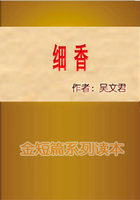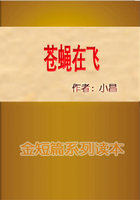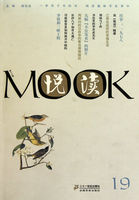Soc. They must be temperate and just?
Men. Yes.
Soc. Then all men are good in the same way, and by participation in the same virtues?
Men. Such is the inference.
Soc. And they surely would not have been good in the same way, unless their virtue had been the same?
Men. They would not.
Soc. Then now that the sameness of all virtue has been proven, try and remember what you and Gorgias say that virtue is.
Men. Will you have one definition of them all?
Soc. That is what I am seeking.
Men. If you want to have one definition of them all, I know not what to say, but that virtue is the power of governing mankind.
Soc. And does this definition of virtue include all virtue? Is virtue the same in a child and in a slave, Meno? Can the child govern his father, or the slave his master; and would he who governed be any longer a slave?
Men. I think not, Socrates.
Soc. No, indeed; there would be small reason in that. Yet once more, fair friend; according to you, virtue is "the power of governing"; but do you not add "justly and not unjustly"?
Men. Yes, Socrates; I agree there; for justice is virtue.
Soc. Would you say "virtue," Meno, or "a virtue"?
Men. What do you mean?
Soc. I mean as I might say about anything; that a round, for example, is "a figure" and not simply "figure," and I should adopt this mode of speaking, because there are other figures.
Men. Quite right; and that is just what I am saying about virtue-that there are other virtues as well as justice.
Soc. What are they? tell me the names of them, as I would tell you the names of the other figures if you asked me.
Men. Courage and temperance and wisdom and magnanimity are virtues; and there are many others.
Soc. Yes, Meno; and again we are in the same case: in searching after one virtue we have found many, though not in the same way as before; but we have been unable to find the common virtue which runs through them all.
Men. Why, Socrates, even now I am not able to follow you in the attempt to get at one common notion of virtue as of other things.
Soc. No wonder; but I will try to get nearer if I can, for you know that all things have a common notion. Suppose now that some one asked you the question which I asked before: Meno, he would say, what is figure? And if you answered "roundness," he would reply to you, in my way of speaking, by asking whether you would say that roundness is "figure" or "a figure"; and you would answer "a figure."Men. Certainly.
Soc. And for this reason-that there are other figures?
Men. Yes.
Soc. And if he proceeded to ask, What other figures are there? you would have told him.
Men. I should.
Soc. And if he similarly asked what colour is, and you answered whiteness, and the questioner rejoined, Would you say that whiteness is colour or a colour? you would reply, A colour, because there are other colours as well.
Men. I should.
Soc. And if he had said, Tell me what they are?-you would have told him of other colours which are colours just as much as whiteness.
Men. Yes.
Soc. And suppose that he were to pursue the matter in my way, he would say: Ever and anon we are landed in particulars, but this is not what I want; tell me then, since you call them by a common name, and say that they are all figures, even when opposed to one another, what is that common nature which you designate as figure-which contains straight as well as round, and is no more one than the other-that would be your mode of speaking?
Men. Yes.
Soc. And in speaking thus, you do not mean to say that the round is round any more than straight, or the straight any more straight than round?
Men. Certainly not.
Soc. You only assert that the round figure is not more a figure than the straight, or the straight than the round?
Men. Very true.
Soc. To what then do we give the name of figure? Try and answer.
Suppose that when a person asked you this question either about figure or colour, you were to reply, Man, I do not understand what you want, or know what you are saying; he would look rather astonished and say: Do you not understand that I am looking for the "simile in multis"? And then he might put the question in another form: Mono, he might say, what is that "simile in multis" which you call figure, and which includes not only round and straight figures, but all? Could you not answer that question, Meno? I wish that you would try; the attempt will be good practice with a view to the answer about virtue.
Men. I would rather that you should answer, Socrates.
Soc. Shall I indulge you?
Men. By all means.
Soc. And then you will tell me about virtue?
Men. I will.
Soc. Then I must do my best, for there is a prize to be won.
Men. Certainly.
Soc. Well, I will try and explain to you what figure is. What do you say to this answer?-Figure is the only thing which always follows colour. Will you be satisfied with it, as I am sure that I should be, if you would let me have a similar definition of virtue?
Men. But, Socrates, it is such a simple answer.
Soc. Why simple?
Men. Because, according to you, figure is that which always follows colour.
(Soc. Granted.)
Men. But if a person were to say that he does not know what colour is, any more than what figure is-what sort of answer would you have given him?
Soc. I should have told him the truth. And if he were a philosopher of the eristic and antagonistic sort, I should say to him:
You have my answer, and if I am wrong, your business is to take up the argument and refute me. But if we were friends, and were talking as you and I are now, I should reply in a milder strain and more in the dialectician's vein; that is to say, I should not only speak the truth, but I should make use of premisses which the person interrogated would be willing to admit. And this is the way in which Ishall endeavour to approach you. You will acknowledge, will you not, that there is such a thing as an end, or termination, or extremity?-all which words use in the same sense, although I am aware that Prodicus might draw distinctions about them: but still you, I am sure, would speak of a thing as ended or terminated-that is all which I am saying-not anything very difficult.















